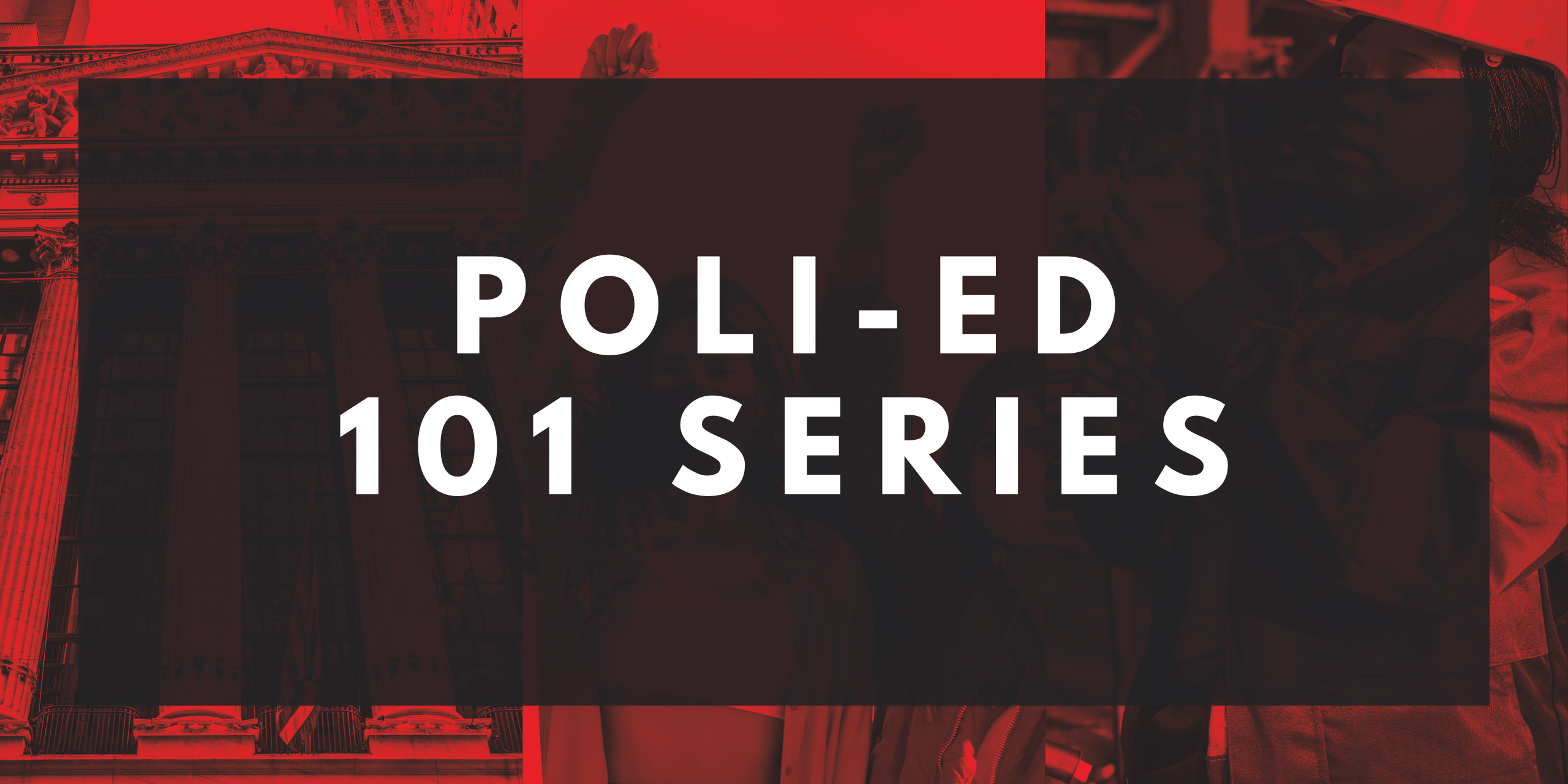Poli-Ed 101: Module 1 – What is Capitalism?
“What is Capitalism?” is the first module in our 3-Part DSA Political Education 101 Series. The readings have been selected to highlight DSA’s fundamental political analysis and key political questions so that we can use them as the core of our political education work in order to equip all DSA members with a common base of knowledge to apply to our organizing efforts. Each of the readings contain particular political points of view and members are encouraged to critically engage especially where they may raise fruitful debates.
—-
As socialists, we want to transform the world into one that is just, with freedom and equality for all. But rather than begin with the world as we want it to be, we must start with the world as it is, because the state of the world constrains our options and defines the means available to us to create a better world.
Most of us (indeed, the vast majority) are workers, and that means we already have first hand experience of capitalism: the deprivations, the instability, the compulsion to sacrifice hours and hours every day to work for someone else. First, we must understand that these are not individual or unique problems, but problems shared by the whole working class.
However, capitalism cannot be fully understood just by looking at experiences that are common to all workers. This is because capitalists rely upon dividing the working class to maintain their control: while collectively we are powerful, divided we are weak. There are many lines along which this division occurs. This module introduces the relationship between capitalism and one such division, racism, which is etched particularly deeply into American life.
Digging into the mechanics of capitalism provides us the tools to dismantle and replace it. Winning socialism is the most ambitious project in history, and we cannot succeed without paying close attention to our opponents and the political, economic, and social terrain. The nature of class society and of specific classes; the way they act and interact; and the material conditions and social relations that structure our lives–all of this is essential knowledge for effective and concrete strategies to build a just society, where everyone is cared for, and all people enjoy freedom and equality.
The readings for this module are arranged in an order that has each reading building on the ideas in the preceding reading. The excerpt from the Communist Manifesto by Karl Marx and Friedrich Engels describes the historical emergence of capitalism as a social system, the main classes it produces, and the political roles played by these classes in capitalist society and in the class struggle to replace capitalism with socialism. The excerpt from Understanding Capitalism by Vivek Chibber builds on this historical understanding to define in more detail what capitalism is and how it works economically.
After both these basic elements are established, the module moves to the excerpt from Keeanga-Yamahtta Taylor’s From #BLM to Black Liberation, which introduces the relationship between capitalism and the historical and present oppression of Black people. Finally, Erik Olin Wright’s article But At Least Capitalism is Free and Democratic, Right? brings us to the political question of what capitalism means for the freedom of working class people and for democracy. If capitalism is undemocratic and makes our class unfree, we have to replace it with a new social system democratically planned by working people – socialism.
The readings for this module are:
-
- The Communist Manifesto, an excerpt (12 pages, 30-40 minute read) – This text was written almost 200 years ago! If it’s hard to read, start here with this NPEC PODCAST EPISODE discussing it.
- Understanding Capitalism, an excerpt (13 pages, 25 minute read) – This reading is a little more advanced. If you’d like to you can listen to the NPEC PODCAST EPISODE on the chapter to help you in your reading.
- From #BLM to Black Liberation, an excerpt (8 pages, 20 minute read) – This is a brief excerpt from a book dealing with the profound question of the relationship between racism and capitalism. For some more discussion on the topic check out the NPEC PODCAST EPISODE accompanying it.
- But At Least Capitalism is Free and Democratic, Right? (4 pages, 8 minute read) – Listen here for the NPEC CLASS PODCAST EPISODE on the article for a summary of the arguments and some thoughtful unpacking of the core concepts.

